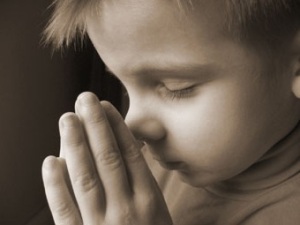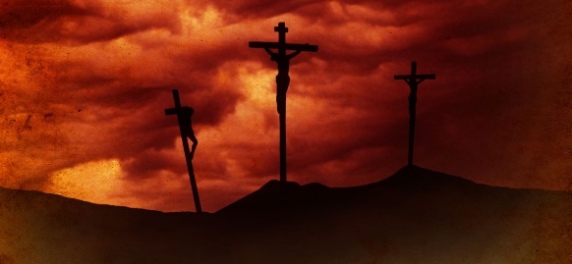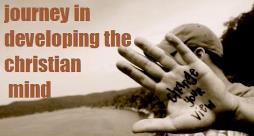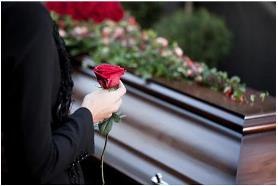
According to the words of St. Alphonsus, one of the great doctors of the Church, prayer is the great means of salvation. He even wrote, “He who prays is certainly saved; he who does not pray is certainly damned. All the saints in heaven, except infants, were saved because they prayed; and all the damned in hell were damned because they did not pray, and this is their greatest torment to see how easily they could have been saved, had they prayed, and that now the time for prayer is over.”
Elsewhere Saint Alphonsus tells us the reason for this: without prayer, all our good resolutions will vanish into smoke, because we will not receive the grace we need to keep them. We know well enough what we should do; we even want to do it; but unless God helps us, when the occasion arises, we do not do it.
Saint Paul himself was conscious of this contradiction: “The good that I would I do not; but the evil which I would not, that I do.” (Rom. 7,19). Only through God’s grace, we are enabled to overcome the power of sin, and grace is given to prayer.
Prayer can rightly be compared to breathing. Breathing is made up of a twofold movement: expiration and inspiration, breathing out and drawing in. The same with prayer: from the heart goes out praise and thanksgiving to God, and in return man draws in forgiveness and grace.
Breathing is the condition of life; as long as there is a breath, there is life, but the moment breathing stops, death is certain, unless somebody is able to restore respiration. It is the same with prayer: as long as one prays, even if he is the greatest sinner, there is still some life in his soul and there is hope that he may recover. But when one has given up prayer, the only hope left for him is that through the prayers of others he may be brought back to prayer. And as risky as it is to count on artificial respiration to bring somebody back to life, it is equally risky to count on the prayers of others to be saved.
From this we understand why Jesus insisted “about the need to pray continually and never lose heart” (Lk. 18, 1); why he warned the Apostles in the garden to stay awake and to pray so as not to give in to temptation, because “the spirit is willing, but the flesh is weak” (Mk. 14,38).
The Apostles did not forget the lesson. The first thing they did after the Ascension was to gather in the upper room, where they were staying, and all together they “joined in continuous prayer” (Acts 1, 14). We see in the Acts how they remained faithful to prayer either in common or as individuals, before an election or an ordination, in time of persecution, before working a miracle, in prison, etc. In their writings, they exhort their disciples to do the same. Saint Paul, who so often assures his correspondents of his prayers for them and asks for theirs, reminds them also that they must be persevering in prayer (Col. 4,2), pray for all they need (Phil. 4,6), and “pray all the time” (Eph. 6,18). Peter (I Pet. 4,7) and John (I Jo. 5,14-16), James (1, 5-6; 5,13; 16-18), Jude (20), and the author of the letter to the Hebrews (Heb. 13,18) do the same.
Yet, great as it may be, our need to pray it is not the first reason why we must pray. The fundamental reason is that we owe it to God, a duty to thank and to praise him. This is why Jesus taught us to ask for God’s glory before asking ourselves, and even then, to ask what we need to fulfill this duty. Ours is a passing need and therefore we ask only for this day, the present life, while praising and thanking God remain our duty forever and will be our eternal occupation in heaven.
Even if prayer is a duty, it does not mean one should pray just because one has to. To be true, praise and thanksgiving must come from the heart; on the lips, alone they would be lies and it impossible to lie to God. Gratefulness and admiration spring from love and there is no love unless it is free. Yet we have a duty to love God; it is the first commandment and that love must be free.
How would it be possible not to be obliged to be grateful to God and at the same time not to love him for his goodness to us? All that we are all that we have, he has given us, and in addition, he wants to give us all that he has. Not only does he take constant care of us, but also he has adopted us for his children when to be accepted as servants in his heavenly palace would have been undreamed of honor. How heartless would we be, were we never to thank him. We should consider it a most elementary duty to say “thank you,” even for an insignificant gift or a passing kindness. Is it not a duty to recognize and honor excellence, and do we not admire it when we meet with it? When this excellence is an excelling goodness, how could we not live it? Excelling all excellent goodness is the infinite goodness of God, who gives to all most abundantly, not because he must or for the sake of gain, but out of pure generosity, because he is good, so infinitely good that he even gives to those who have offend him. Even when he asks us to love him in return, it is for our own good, so that loving as he loves, we may be happy as he is, since he is infinite happiness because he is infinite love.
Moreover, he rewards us when we give him the love we owe him. Did ever a man reward anybody for paying his debts? He might perhaps grant a discount, but surely not repay a thousand fold over what he received.
If prayer is a duty as loving God is a duty, then how foolish it is to say, “I pray or I go to Mass when I feel like it.” Would you dare say: “I’ll love God, when I feel like it?” Would you dare tell your boss: “I’ll work when I feel like it?” Better, not try it, not even once! A duty binds, whether we like it or not. However, if such were your disposition then all the greater would be the need for you to pray and to ask God to open your eyes on your spiritual misery.
Because we all fall so short in giving God the praise and thanksgiving, he deserves, and because we cannot even hope ever to praise and thank him enough, we all need to ask with the Apostles: Lord, teach us how to pray.



 Two men, both seriously ill, occupied the same hospital room. One man was allowed to sit up in his bed for an hour a day to drain the fluids from his lungs. His bed was next to the room’s only window. The other man had to spend all his time flat on his back.
Two men, both seriously ill, occupied the same hospital room. One man was allowed to sit up in his bed for an hour a day to drain the fluids from his lungs. His bed was next to the room’s only window. The other man had to spend all his time flat on his back.






Recent Comments